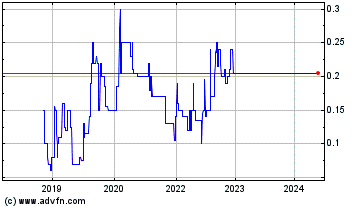Myriad Metals (CSE:MMC)
Historical Stock Chart
From Dec 2019 to Dec 2024


